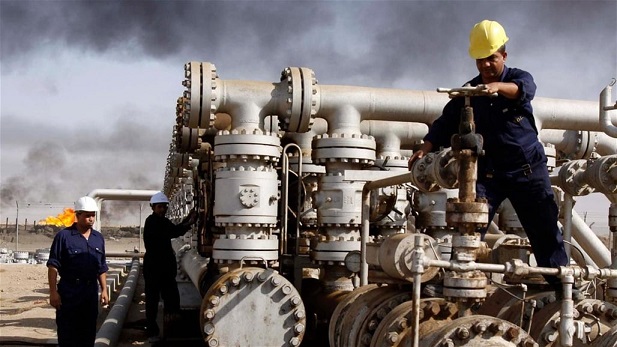A specialist presents 7 observations related to the oil and gas law and points out several negatives
A specialist presents 7 observations related to the oil and gas law and points out several negatives
2023-09-01
 Today, Friday, economist Nabil Al-Marsoumi made seven preliminary observations about the third edition of the Oil and Gas Law for the year 2023, while pointing out several negative aspects of the law.
Today, Friday, economist Nabil Al-Marsoumi made seven preliminary observations about the third edition of the Oil and Gas Law for the year 2023, while pointing out several negative aspects of the law.
Al-Marsoumi said in a blog post that “the new third version of the draft oil and gas law is not much different from the previous two versions in 2007 and 2011, and some observations can be made on the draft oil and gas law for the year 2023 as follows:
First: The legislation of the oil and gas law was supposed to precede the establishment of the national oil company, and that the president of the company should be represented in the Federal Oil and Gas Council.
Second: There is no need to involve the Governor of the Central Bank in the Federal Oil and Gas Council.
Third: It seems that the Iraqi legislator has taken advantage of the Federal Court’s decision in February 2022, which considered oil and gas activity in the region illegal, as well as the decision of the International Trade Court in Paris in March 2023, which prevented Kurdistan from using the Iraqi-Turkish line, which led to the cessation of the region’s oil exports. This investment is evident in the nature of the formation of the Federal Council, which is dominated by the central authority, and in the nature of the great powers enjoyed by the Federal Council for Oil and Gas, in exchange for very limited powers for the region and the producing provinces that are not organized in a region.
Fourth: The need for the law to include the principle of weighted voting in the Federal Oil and Gas Council according to certain criteria, such as having two or more votes for the governorate that produces more than one million barrels of equivalent per day.
Fifth: Article 8 of the law states that (the Federal Ministry of Oil shall manage the oil and gas producing fields throughout Iraq in coordination with the producing region and governorates), and the explored and undeveloped fields, as well as the exploratory patches and how to manage them, were not addressed.
Sixth: The law did not give an important role to the region and the producing governorates that are not organized into a region in drawing up strategic policies related to the development of oil and gas, which is inconsistent with Article 112 second of the Iraqi constitution, which states (the federal government and the governments of the producing regions and governorates together draw up the necessary strategic policies for the development of oil wealth And gas in order to achieve the highest benefit for the Iraqi people, adopting the latest technologies, market principles and investment encouragement).
Seventh: The law did not include any article indicating how to deal with contractual obligations with foreign companies, especially the production-sharing contracts that it signed with Kurdistan 15 years ago, which are subject to mandated international arbitration in the event of breach of contractual obligations between foreign companies and the region.
burathanews.com
